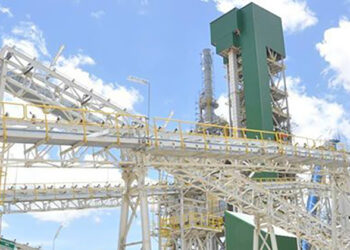NAYPYITAW—The Ministry of Finance and Revenue will hold extensive discussions with the business sector on whether to reduce the tax rate on income from unidentified sources.
“We will hold extensive discussions with concerned departments, UMFCCI [Union of Myanmar Federation of Chambers of Commerce and Industry] and big taxpayers, and try to draft a separate law that will be more comprehensive. We’ll start as soon as we can,” U Maung Maung Win, deputy minister for planning and finance, told reporters in Naypyitaw.
On Tuesday, the Union Parliament approved a recommendation from the Joint Bill Committee to exclude from the 2018 Union Taxation Law a provision on the taxing of income and possessions whose source taxpayers cannot explain.
Under Chapter 8 of the draft Union Taxation Law 2018, the tax rate on such income was to be reduced. This led to a public outcry amid complaints that the provision would facilitate money laundering.
In 2016, the National League for Democracy (NLD)-led government imposed a 30-percent tax rate on the purchase of property paid for with funds whose source the buyer cannot identify.
The move aimed to rein in property prices, as the government was concerned that large sums of money were being laundered through the property market.
However, many developers were adversely affected by this move, and the property market saw its worst year in 2017 as a result.
“If the tax rate is to be reduced, we need a separate law. The provision in the [draft] Union Taxation Law is not sufficient,” the secretary of the Joint Bill Committee, Dr Myat Nyana Soe, told Parliament.
Developers are not happy with Parliament’s decision to reconsider the tax reduction, as they were anticipating a tax cut effective April 1. Their hope was that the reduced tax rate would spur the sluggish property market and attract investors.
“The government needs to explain to lawmakers in advance why those taxes need to be reduced. Lawmakers said they didn’t know about it,” said Dr Soe Tun, a businessman based in Yangon.
Developers will be hit hard by the postponement, he said. “Some developers have taken loans from banks. So if developers are hit hard, banks may also suffer the consequences,” he said.
Some lawmakers claimed in Parliament that a reduction in the tax rate on unexplained income would not be fair to average taxpayers.
Meanwhile, the Union Parliament approved the Union Taxation Bill’s provision to reduce tax from 20 percent to 10 percent on purchases of small cars of 1,500 to 2,000cc, which are within the reach of middle-income families.
According to a report by the Joint Bill Committee, the tax rate for unexplained sources of income is 15 percent on income from 1 kyat to 30 million kyats, 20 percent from 30 million kyats to 100 million kyats, and 30 percent for income above 100 million kyats.
Despite public calls for an income tax cut, the Union Parliament maintained the clause requiring anyone with a minimum annual income of 4.8 million kyats to pay income tax.

















